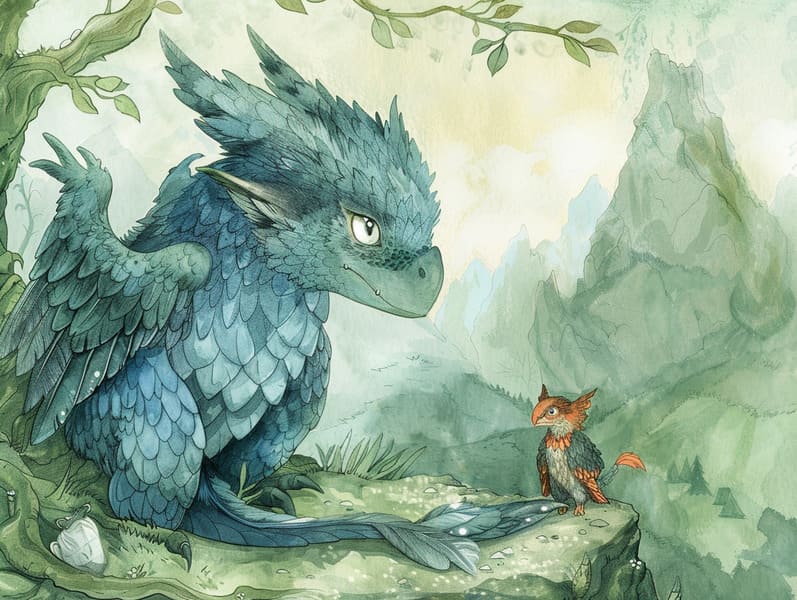
Evening is a precious time for caregivers and children. It’s a chance to calm down, nestle in, and enjoy the charm of stories.
For years, nightly tales for children have been a valued legacy, offering more than just a way to fall asleep. They provide an prospect for relationship building, development, and igniting imagination.
Understanding the Importance of Bedtime Stories
Evening stories for little ones go beyond a way to close the day. They play a significant role in a child’s growth and in strengthening the parent-kid rapport. Here’s why they make a difference:
1. Together Time: Nightly storytelling builds a special period of closeness between families. It’s a moment of attachment that helps children feel appreciated and content.
2. Language Acquisition: Enjoying narratives helps children develop their speech skills. They gain new language, understand grammar, and develop their hearing and analytical skills abilities.
3. Creative Development: Children's tales take them to magical worlds, sparking dreams. They dream of characters, settings, and adventures, which powers their imagination.
4. Emotional Skills: Stories for children often present characters facing difficulties and states. These plots help kids recognize and manage their own emotions, promoting emotional skills.
5. Intellectual Growth: Engaging with a story helps children develop attention span, recall, and critical thinking skills. They develop to follow lines of thought, remember components, and deduce results.
Incorporating Bedtime Stories into Your Routine
Building a nightly ritual that has storytelling is effortless and gratifying. Here’s how to develop a prized part of your end-of-day habit:
1. Choose a Relaxing Place: Pick a relaxing place where you and your child can huddle together without disruptions. A comfortable bed or a quiet reading nook works wonderfully.
2. Pick the Right Time: Choose a specific time each night for narratives. Uniformity helps children be ready and makes the routine easier to maintain.
3. Select Stories by Age: Choose tales that suit your child’s cognitive level. Little kids might like picture books with clear stories, while older kids may be interested in novels with more detailed stories.
4. Engage with the Story: Make sure the tale come alive by incorporating different character voices, adding audio effects, and encouraging your child to be involved. Ask questions about the story to keep them listening.
5. Create a Calm Atmosphere: Lower the lights, use calm voices, and create a calming environment to help your child settle down.
Where to Discover Bedtime Stories
There are endless choices where you can find amazing bedtime stories for children. Here are some ways to explore:
1. Children’s Literature: Check out your area library or bookstore to find a large selection of bedtime stories for kids. Going through the books together can be a entertaining activity that also permits children to find stories that they are drawn to.
2. Web Resources: There are many web resources that offer free bedtime stories. Sites like online story sites provide a variety of short stories for kids that you can get for free. These websites are great for finding new and varied stories without expense.
3. Audiobooks and Apps: For nights when you’re too weary to read, use audiobooks or storytelling apps. These can provide a soothing voice to read your child a story, ensuring they still get their bedtime story fix. Apps often offer engaging components that can capture their attention further.
4. Tailored Stories: Compose your own stories inspired by your child’s passions. Personalized stories can be very engaging and meaningful. You can get your child in the creation process, making them a part of the adventure.
Short Story Advantages
Quick stories for bedtime are very great for bedtime. They provide all the good aspects of longer stories but are more compact, making them perfect for getting ready for bed before sleep. Here’s why short stories are a excellent choice:
1. Easy to Follow: To-the-point tales are straightforward and effortless for children to follow, even after a long day. read aloud stories They can promptly grasp the tale and enjoy the story without getting lost.
2. Quick Engagement: Short tales quickly engage children, catching their concentration and creativity. This makes them ideal for keeping bedtime rituals efficient yet enjoyable.
3. Many Choices: Compact stories allow for variety in your bedtime storytime. You can find a different story each night, keeping the practice exciting and exciting for your child.
4. Time Management: For busy parents, concise narratives are a fast way to verify children still get their nightly dose of storytelling. They fit well into a crowded schedule while still offering the full benefits of a bedtime story.
Why "Read Me a Story" is Magic
The simple phrase, “Will you read me a story?” can reveal a world of magic for children. Reacting to this request not only fulfills a child’s request for attention and engagement but also establishes lasting memories. Here’s why it’s wonderful:
1. Relationship: Telling tales to your child develops a deep emotional link. It’s a time for closeness, sharing, and bonding.
2. Legacy: Forming a bedtime story practice creates a beloved tradition that children are excited for every night. It’s a custom that can be shared through generations.
3. Shared Learning: As you narrate, you’ll witness your child’s maturation and growth. Their interest, reactions, and understanding of the stories grow, offering insights into their developing minds.
4. A Safe Haven: Bedtime stories provide a safe space for children to understand emotions, face fears, and find comfort in the reliable presence of a parent.
Summary
Kids’ bedtime stories are a valuable tool for developing a child’s advancement and establishing unforgettable times of connection.